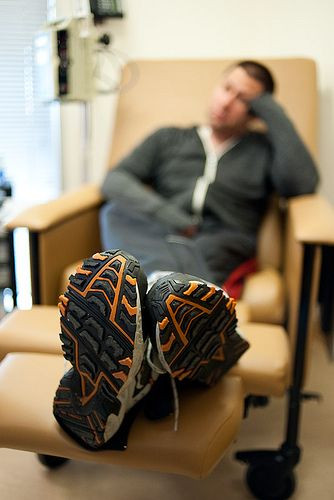Microorganism May Cause Colon Cancer

Researchers have linked a specific microorganism - Fusobacterium - in to colon cancer. Two independent studies linking the organism to cancer were published Tuesday in the journal Genome Research.
Dr. Robert Holt of the BC Cancer Agency and Simon Fraser University, a senior author made an observation that the bacteria Fusobacterium, is found more often in colon cancer tissues than normal tissue.
Researchers found the bacteria by sequenced RNA present in colon cancer tissue and by comparing them to non-cancer colon tissues.
Dr. Holt said "This was especially surprising because although Fusobacterium, the bacterium we found in colon tumors, is a known pathogen it is a very rare constituent of the normal gut microbiome and has not been associated previously with cancer."
Another team led by Dr. Matthew Meyerson of the Dana-Faber Cancer Institute sequenced the DNA present in colon cancer tissue and normal tissue to find microbial sequences.
"It was also surprising that Fusobacterium has also previously been reported to be associated to be with ulcerative colitis, which is itself a risk factor for colon cancer," Meyerson said
What is Colorectal Cancer?
Of cancers affecting both men and women, colorectal cancer (cancer of the colon and rectum) sometimes called colon cancer for short, is the second leading cancer killer in the United States. The last quantitative statistics done in 2007, in the United States 142,672 people were diagnosed with colorectal cancer, and 53,219 people died from its yearly, according to the Center for Disease and Prevention (CDC).
Screening for precancerous polyps can be of benefit if the abnormal growths in the colon or rectum are found at an early stage and treated. If that is done, about nine out of ten people are still alive five years later.
Colorectal Cancer link to microorganisms
Both researchers noted it is unclear if Fusobacterium infection is a cause or result of colorectal tumors. The microorganism may provide a useful biomarker for colorectal cancer.
The discovery of Fusobacterium may open an avenue to deliver diagnosis and treatment for colon cancer. Currently researchers are looking into clinical trials to see if antibiotics or vaccines may help treat or prevent cancer.



























